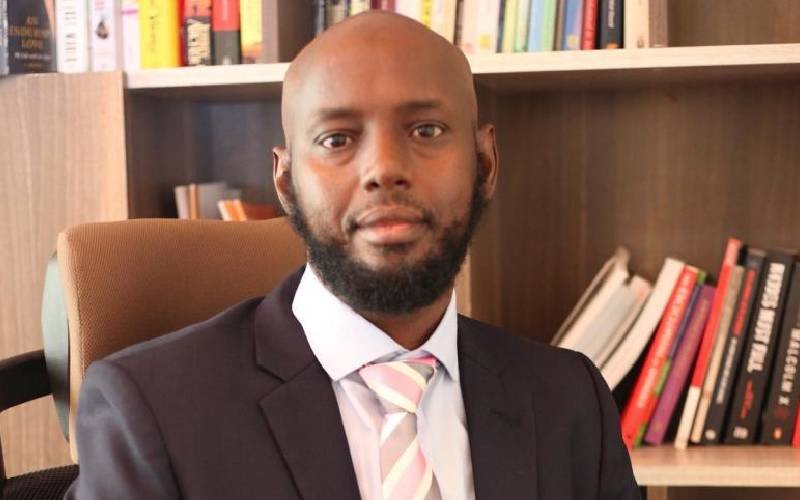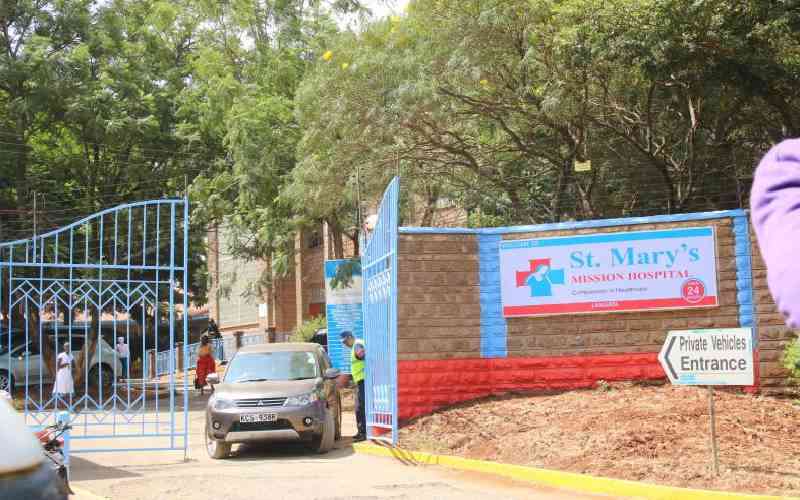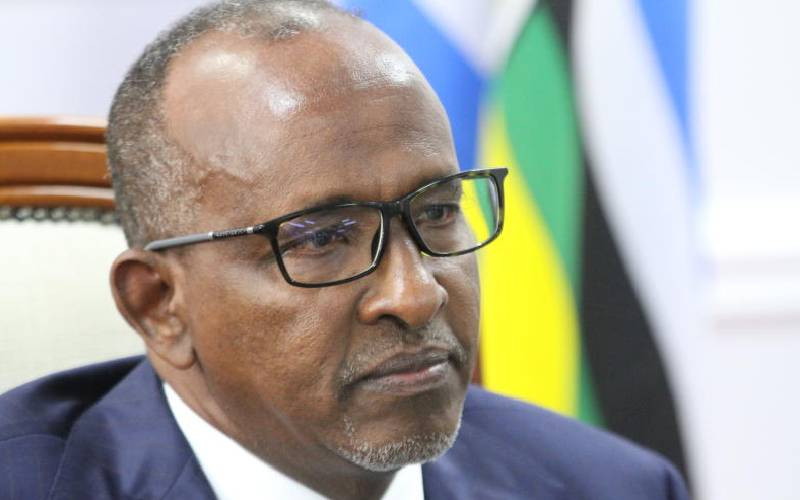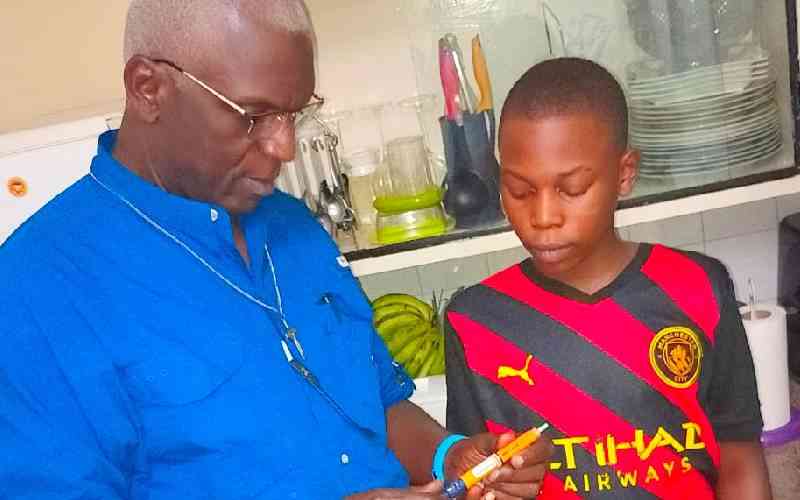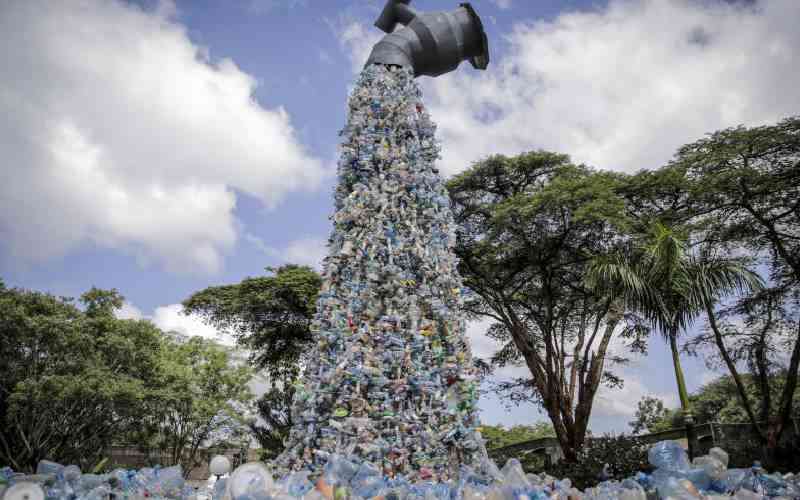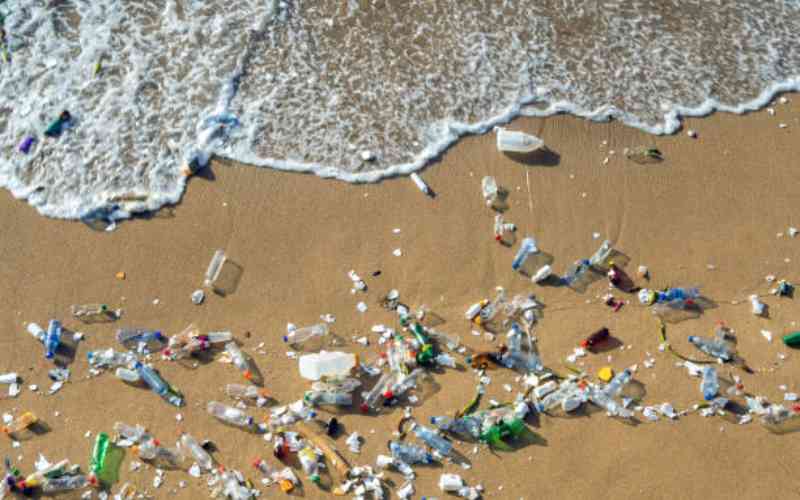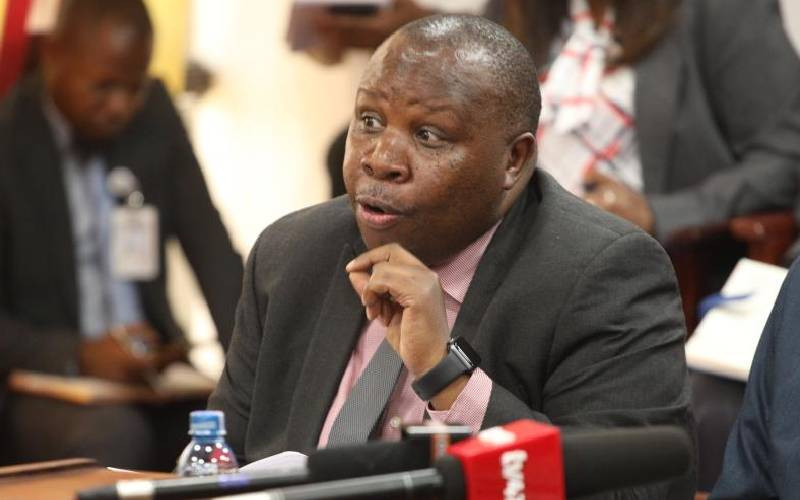
KMPDC Chief Executive Officer David Kariuki when he appeared before the National Assembly Health committee at the Bunge Towers , Nairobi, on February 15, 2024. [File, Standard]
Registration of a hospital in Kenya starts with the would-be owner or investor identifying the place they would like to use as a health facility.
Speaking during an interview in Nairobi, Kenya Medical Practitioners and Dentist Council (KMPDC) CEO David Kariuki said the investor needs to get approvals on local building or occupation laws from the county government.
“Once they have identified, they may need to get approvals on local building or occupation laws from the county government where their facility is located to be able to build, if it's a new building or to repurpose it if it is an already existing one,” said Dr Kariuki.
He explained that once the process is complete, the county public health department will inspect the premises for occupation as health institutions or for their suitability as health facilities.
“The county health department will look at issues around like drainage, sewerage line, accessibility, how they will manage the waste and such,” said Dr Kariuki.
The investor will have their business registered because healthcare facilities are more like businesses, especially when they don't belong to the public or government.
They will thus get registration of their facility or name by the registrar of businesses and get a business registration certificate.
Dr Kariuki said that the next step is to apply to the KMPDC for registration of the facility as a health institution.
“KMPDC does this through CAP 253 of the laws of Kenya, which is the Kenya Medical Practitioners and Dentists Act, that gives us the mandate to register and regulate health facilities,” he said.
“So once they are ready, there is an application form that is available on our website, where they will attach the application form with the requirements,” he added.
The investor will present to KMPDC the application form, together with the compliance report from the county public health department, indicating that the facility is suitable to be used as a health facility, and the business registration certificate
They will also submit a National Environment and Management Authority( NEMA) certificate because there will be waste generated from the hospital that could be medical in nature to avoid destruction of the environment by medical waste.
“So either they have arrangements within the facility on how to discharge or dispose of their waste or they have arrangements with a waste management company that collects their medical waste,” said Dr Kariuki.
“So this is not just any waste management company, it must be a medical waste management company,” he added.
The investor will need to inform KMPDC who will be working for them, because they (investor) may not necessarily be a health worker.
“They will tell us we are applying to own the business, who are the directors, they will give us the names of the directors and the certificates of registration,” he said.
They will also inform KMPDC who will be in charge of treating patients in the facility.
“That person will either be a registered doctor or dentist or a health officer, sometimes could be a clinical officer or even a nurse,” said Dr Kariuki.
The investor will then submit the registration certificates of the person who will be in charge and their current licenses.
“Beyond that, they will also tell us who the other employees are, that is, if it's a new place, we are starting with this set of workers, doctors, nurses, clinic officers, pharmacists or pharmacy technicians, laboratory technicians or technologists, physiotherapy, all those cadres of health workers,” he said.
After that, the application is assessed for completeness on whether KMPDC requires more documentation or not.
“If we require more documentation, we ask for it. Once we have all the documentation, KMPDC now plans for an inspection to ascertain whether the facility indeed exists, including the infrastructure requirements mentioned, despite there being those inspection reports and NEMA compliance certificates,” he said.
This, Dr Kariuki said is a change from what they have being doing previously, in the spirit of working with county governments.
He revealed that they have been using their compliance reports to confirm the infrastructure available and the physical existence of the facility.
“But now to improve on our systems, we do a verification as a council. Once we have done the physical verification, the final checks based on the application, a determination is made on whether to register or not,” explained Dr Kariuki.
“If not, reasons are given. If yes, we say we are registering and at this level. We have various levels and based on all the information you have given us together with the physical verification, we can be able to register that facility either as a Level 2 clinic dispensary or a Level 3, which is a health center, and health centres could be of various types.”
The facilities only provide outpatient services.
It could also be nursing homes, meaning they may be able to admit and even do some operations like caesarean sections.
“Then we may also register as a health hospital, which could either be called a primary hospital, primary referral hospital. This is a Level 4,” he said.
Once the hospital is registered, the investor can apply for an operating license to start offering services.
The KMPDC boss explained that since some facilities may be new and may not have everything in terms of equipment, but have more than 50 per cent of what is needed, they can allow them to start operating because they keep increasing their capacity as their workload increases.
“So what we do is that after initial registration, we now schedule what we call compliance inspections. Compliance inspections are to decide whether one has maintained the level at which we initially registered them or they have done better or they have done worse. And depending on the findings at inspection, we can give various recommendations,” he said.
“We can give a recommendation that as per how we registered you, you have kept to that standard. So continue and we will come back regularly, mostly once a year. We may find that in some sections of the facility, you are not doing very well, especially because hospitals, health systems have various sections.”
He said that for KMPDC to deregister a hospital, they must have done something gross, and that allowing the public to access that facility again would lead to a lot of harm.
“So mostly we close, allowing the facility to work on any non-conformities that they have if they show that they still have the willingness to continue operating as a healthcare business or facility,” he said.
On ghost hospitals that are registered under Social Health Authority (SHA), he said they need more details to ascertain the concerns.
Dr Kariuki explained that KMPDC currently works with facilities that they have been able to ascertain, but there are cases where an investor closed and changed their business and did not inform the council.
“So the issue of ghost hospitals is something that would need more detailed analysis to be able to confirm the exact situation on the ground, and we work together with all agencies to make sure. And that is why we normally do what we are calling compliance inspections,” he said.
He said in the past, investors were not required to inform KMPDC when they leave ownership, but currently, under the business registration process, there is a section about beneficial ownership.
“It has been voluntary to tell us ownership has changed, because you see, when they don't change the name of the hospital, as they change hands, it wasn't a must previously. But today, that is one of the mandatory requirements, that you provide us with the ownership through a CR12,”said Dr Kariuki.
He admitted the existence of some hospitals that have not been registered.
“What happens is people may open clinics, because previously they have not known that you should not start operating before you are fully registered, receive a registration certificate and an operating license,” he said.
“People have previously thought that once the county public health department inspects their facility, it's like a gate, you can start operating. Unfortunately, by then, it's not a registered facility, and those we pick up as we do our inspections across the country and that's why you'll hear, we have closed a facility because it is not registered,” Dr Kariuki added.
He warned that one risks a criminal case operating a non-registered health facility.
The KMPDC said they have stopped approving the establishment of hospitals in residential apartments, like it’s happening in Eastlands, Nairobi.
“We have now given them notice since March for six months to make arrangements to find alternative spaces because we know even in those estates, there are places that are designated to be commercial and others residential. They can put the hospital in the commercial space, not in the residential spaces.
 The Standard Group Plc is a multi-media organization with investments in media
platforms spanning newspaper print
operations, television, radio broadcasting, digital and online services. The
Standard Group is recognized as a
leading multi-media house in Kenya with a key influence in matters of national
and international interest.
The Standard Group Plc is a multi-media organization with investments in media
platforms spanning newspaper print
operations, television, radio broadcasting, digital and online services. The
Standard Group is recognized as a
leading multi-media house in Kenya with a key influence in matters of national
and international interest.

